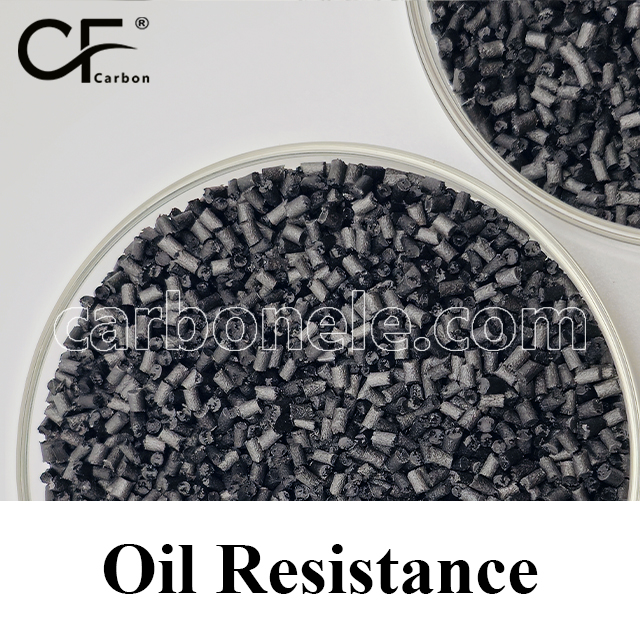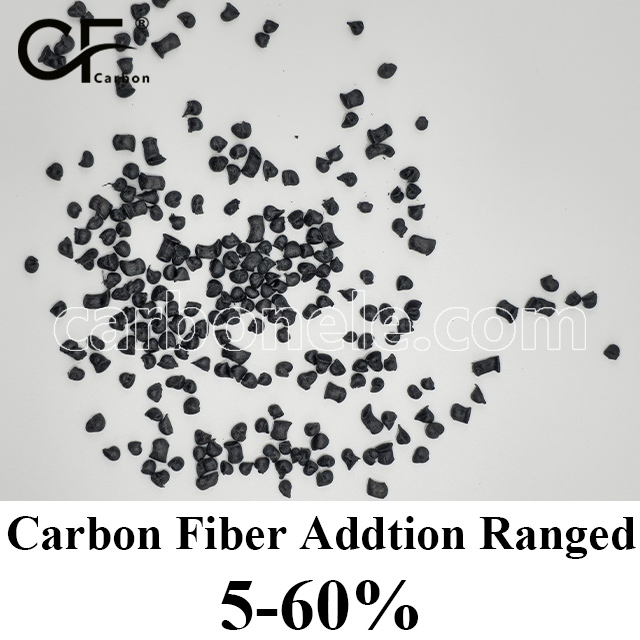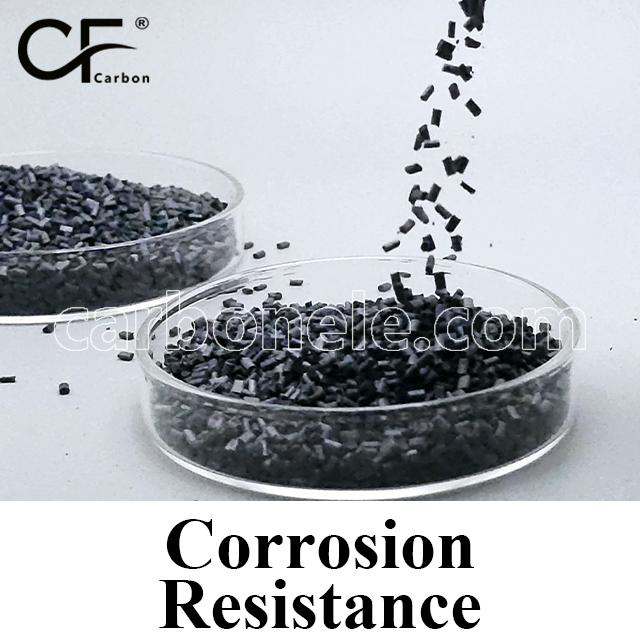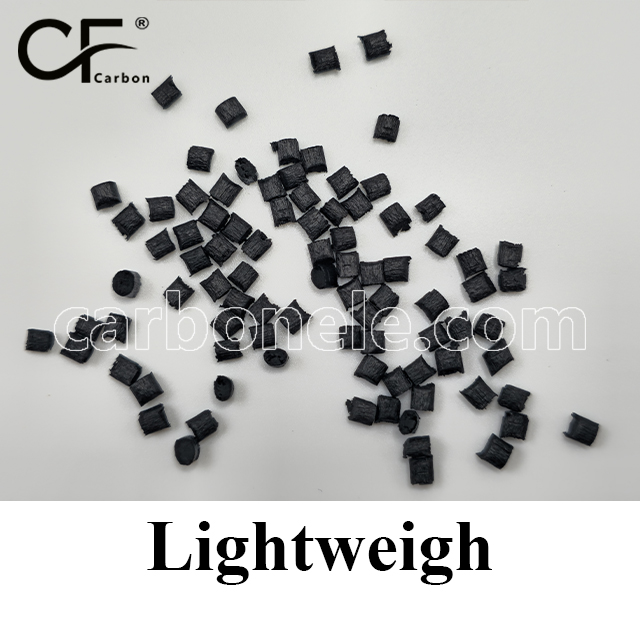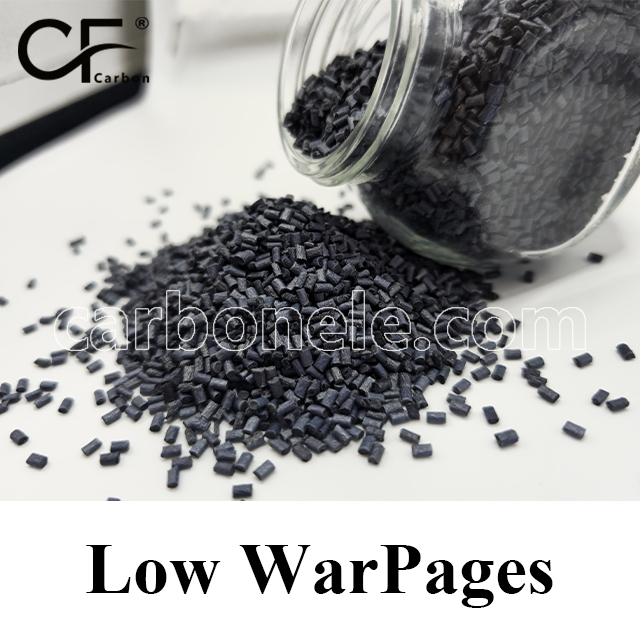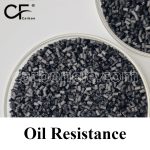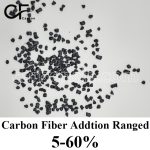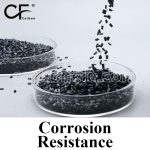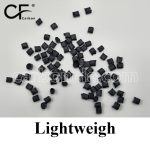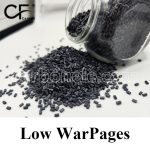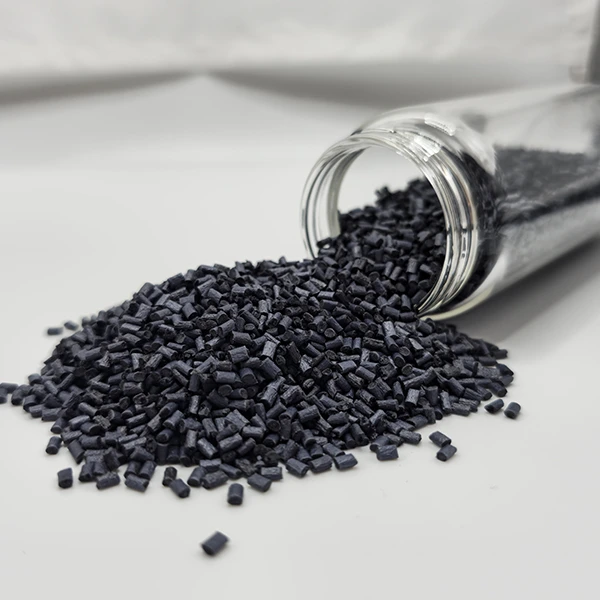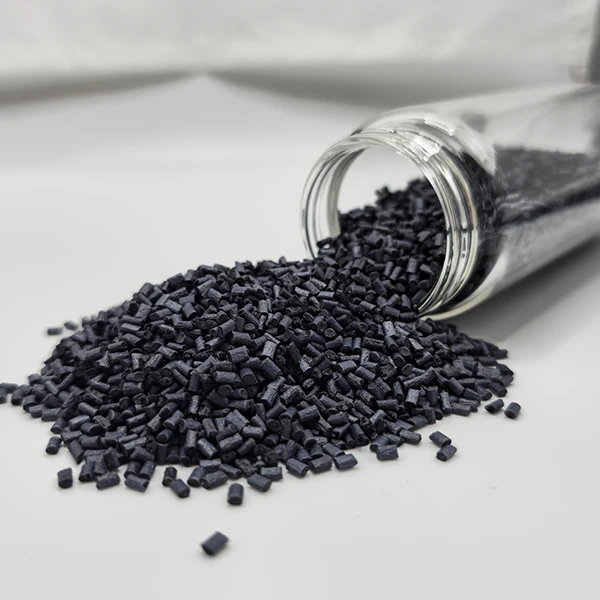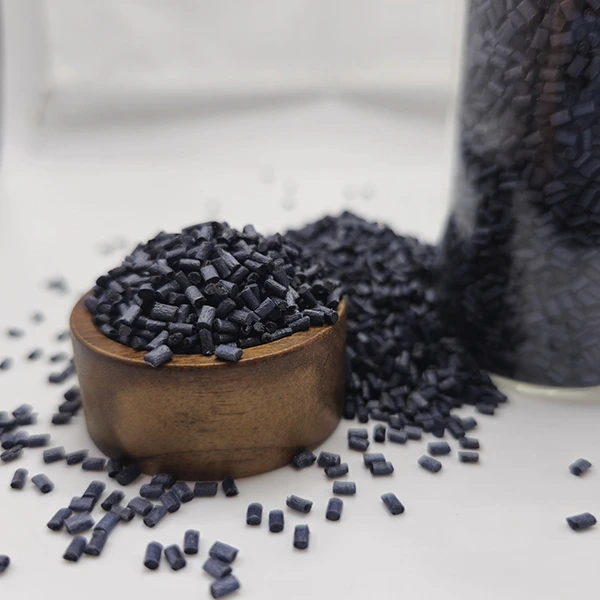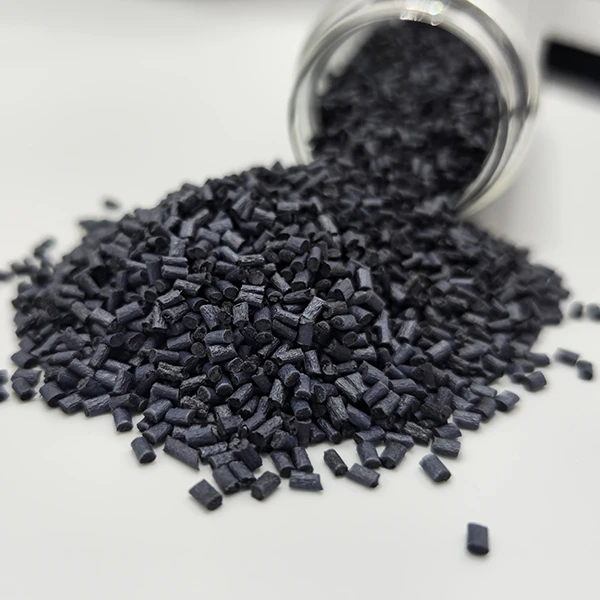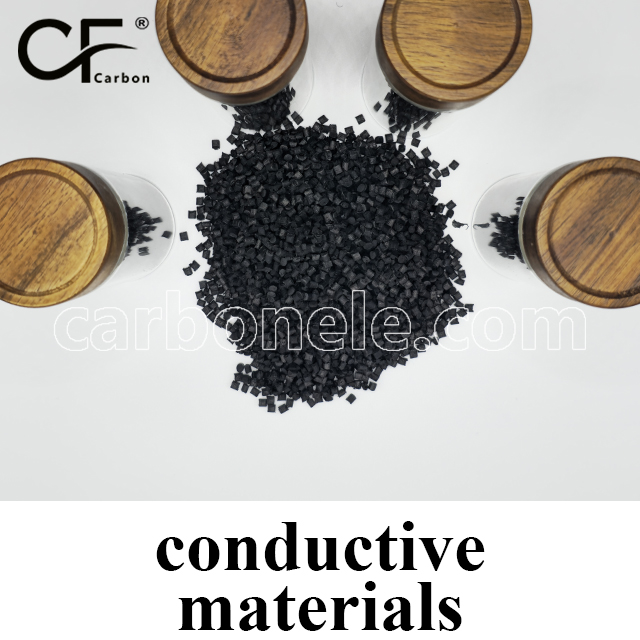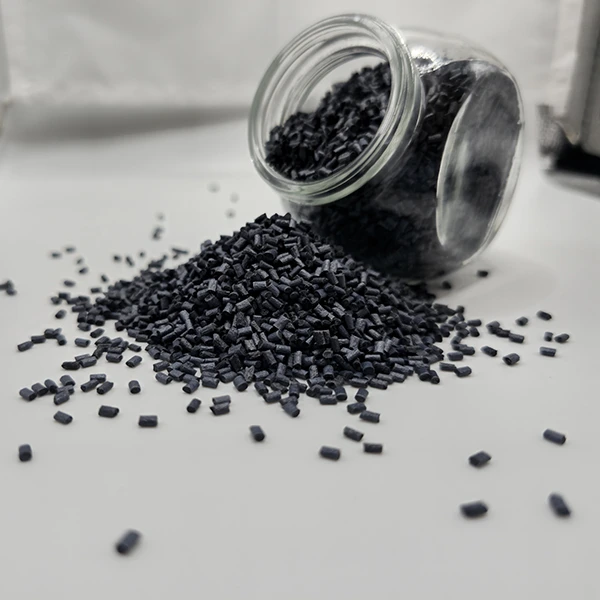PPSU-CF05 is a composite material reinforced with 5% carbon fiber, offering improved mechanical properties, wear resistance, and chemical stability compared to unreinforced PPSU. It is ideal for applications requiring moderate strength, high thermal and chemical resistance, and excellent processability. Common uses include automotive components, industrial parts, and electronic housings, where reliability and durability are essential.

PPSU-CF05 High-performance nylon material
- Model number: PPSU-CF-BCA05
- Matrix Resin: Polyphenylene sulfone resins (PPSU)
- Reinforcing Filler: Carbon fiber
- Appearance: Granules
- Grade: Injection/extrusion grade
- Packaging: 25kgs/bag
Mechanical Properties
PPSU-CF05 is a high performance composite material reinforced with 5% carbon fiber, offering substantial improvements in stiffness, strength, and wear resistance compared to unreinforced PPSU. While the carbon fiber content is lower compared to more heavily reinforced composites, PPSU-CF05 still delivers an excellent balance of mechanical performance, making it suitable for applications where moderate reinforcement is needed. This material provides enhanced durability while maintaining ease of processing.
Tensile Strength: ≥ 100 MPa
Flexural Strength: ≥ 150 MPa
Impact Strength: ≥ 5.0 kJ/m²
With its 5% carbon fiber content, PPSU-CF05 provides a reliable choice for applications requiring moderate mechanical strength, wear resistance, and durability in various conditions.
Thermal and Chemical Resistance
PPSU-CF05 offers exceptional thermal stability and chemical resistance, similar to pure PPSU, with the addition of 5% carbon fiber providing enhanced overall performance in high temperature and chemically aggressive environments. It remains stable and reliable even in the presence of oils, fuels, solvents, and high temperature exposure.
Heat Deflection Temperature (HDT): Approx. 220°C
Long-Term Service Temperature: Up to 220°C
Chemical Resistance: Excellent resistance to oils, fuels, solvents, and a wide range of chemicals
PPSU-CF05 excels in environments requiring strong heat and chemical resistance, ensuring excellent long term performance in demanding conditions.
Wear Resistance and Processing
The 5% carbon fiber content of PPSU-CF05 enhances its wear resistance compared to pure PPSU, making it well suited for applications with moderate mechanical stress and wear. Despite the carbon fiber reinforcement, the material is still processable using standard thermoplastic techniques, such as injection molding and extrusion.
Wear Resistance: Good in moderate wear and friction conditions, offering better durability than pure PPSU.
Processing Methods: Injection molding, extrusion (reinforced tooling recommended)
PPSU-CF05 offers a good balance between wear resistance and processability, making it a viable material for medium wear applications where ease of manufacturing is a priority.
Environmental Adaptability
PPSU-CF05 demonstrates excellent environmental adaptability, with low moisture absorption and good dimensional stability. The material maintains its mechanical properties even when exposed to fluctuating environmental conditions, ensuring reliable performance in a variety of applications.
Water Absorption: Low
Dimensional Stability: Excellent, with minimal expansion or contraction under environmental changes
With its stability under varying conditions, PPSU-CF05 is ideal for applications where environmental stability and reliable performance are essential.
Applications
PPSU-CF05 is ideal for applications that require moderate mechanical strength, wear resistance, and stability under high temperatures and chemical exposure. It is commonly used in industries such as automotive, industrial manufacturing, and electronics:
Automotive: Components exposed to moderate stresses, such as brackets, housings, and supports.
Industrial Manufacturing: Parts requiring moderate durability and dimensional stability in harsh environments.
Electronics: Protective housings and covers needing good thermal and chemical resistance.
Summary Table for PPSU-CF05
| Characteristic | Value/Description |
|---|---|
| Carbon Fiber Content | 5% |
| Tensile Strength | ≥ 100 MPa |
| Flexural Strength | ≥ 150 MPa |
| Impact Strength | ≥ 5.0 kJ/m² |
| Heat Deflection Temp. | Approx. 220°C |
| Long-Term Service Temp. | Up to 220°C |
| Chemical Resistance | Excellent |
| Water Absorption | Low |
| Processing Methods | Injection molding, extrusion (reinforced tooling recommended) |
| Wear Resistance | Good in moderate wear conditions |
If you want to get more information about PPSU-CF05, you can visit our Youtube.
Strength between PPSU and PPSU-CF
PPSU-CF offers significantly higher strength than unreinforced PPSU due to the addition of carbon fiber. This reinforcement boosts both tensile and flexural strength, making PPSU-CF ideal for applications requiring enhanced mechanical performance and durability.
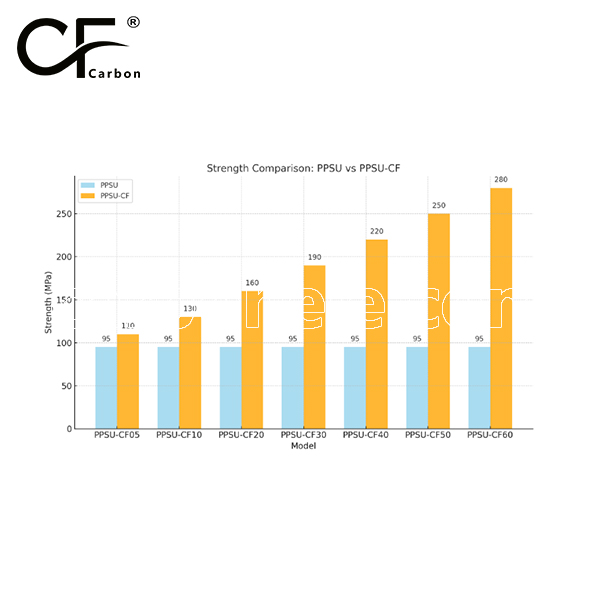
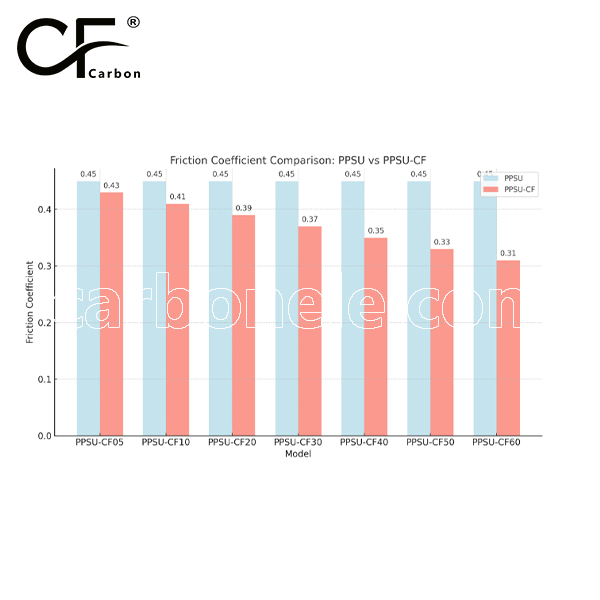

Frequently Asked Questions
Carbon (Xiamen) New Material Co., Ltd. aims to provide buyers with "one-stop" worry-free high-quality services. Here you can find all information about carbon fiber engineering plastics. If you still have questions, please send us an email for consultation!
-
How can I contact the manufacturer of a product that interests me?
When you find a product you are interested in, you can contact the manufacturer directly by sending an email and we will get back to you as soon as possible.
-
How do I find the products that interest me?
All you need to do is enter the keyword, product name in the search window and press the Enter key on your keyboard. Your search results page will then be displayed. You can also search within the product category pages on the home page. Each category is divided into subcategories, allowing you to refine your search and find products that interest you.
-
Where will I find a buying guide?
Please contact our after-sales service directly and we will provide you with a comprehensive operating guide.
-
What are CF Reinforced Thermoplastic Composites?
CF Reinforced Thermoplastic Composites are materials where carbon fibers are incorporated into a thermoplastic matrix. They combine the strength and stiffness of carbon fibers with the processability and recyclability of thermoplastics. For instance, they are used in automotive parts like bumper beams.
-
What are the benefits of CF Reinforced Thermoplastic Composites over traditional composites?
The key benefits include faster production cycles, easier recyclability, and better impact resistance. They also offer design flexibility. An example is in the manufacturing of consumer electronics casings where complex shapes can be achieved more easily.
-
How are CF Reinforced Thermoplastic Composites processed?
Common processing methods include injection molding, extrusion, and compression molding. Injection molding is widely used for mass production. For example, in the production of small components for the medical industry.
-
What industries use CF Reinforced Thermoplastic Composites?
They are utilized in aerospace, automotive, medical, and sports equipment industries. In aerospace, they can be found in interior components. In the medical field, they might be used in prosthetics.
-
How does the carbon fiber content affect the properties of the composites?
Higher carbon fiber content generally leads to increased strength and stiffness but may reduce ductility. A moderate content is often balanced for specific applications. For example, a higher content might be preferred in structural parts of a race car.
-
What are the challenges in using CF Reinforced Thermoplastic Composites?
Challenges include higher material costs, complex processing equipment requirements, and ensuring uniform fiber dispersion. Issues with adhesion between the fibers and the matrix can also arise. An example is in achieving consistent quality in large-scale production.








